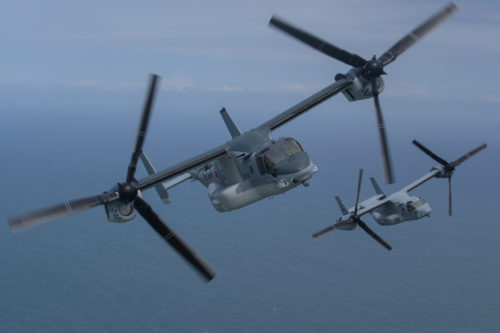In response to a recent U.S. military report highlighting potential mechanical issues, Japan’s Ground Self-Defense Force (GSDF) has taken the proactive step of suspending flights of its MV-22 Osprey fleet. The report called for the replacement of certain parts to mitigate the risk of accidents, prompting the grounding of fourteen tilt-rotor transport aircraft at the GSDF’s Kisarazu camp in Chiba Prefecture since Jul. 22.

Defense Ministry officials confirmed that safety measures would be thoroughly assessed and implemented as needed before allowing the multi-mission aircraft to resume operations. The decision comes after the release of a Marine Corps report on Jul. 21, which examined the cause of an Osprey crash in California that tragically claimed the lives of all five U.S. service members on board in June 2022.
According to the comprehensive investigation, the accident resulted from a loss of control by the pilots due to an unintentional clutch disengagement followed by a sudden, hard clutch engagement. The report attributed the catastrophe to an unanticipated mechanical failure, stressing the urgency of replacing relevant components once they reach a predetermined flight hour threshold.
In the wake of the accident investigation, the U.S. military has already taken several crucial steps to enhance safety. This includes improvements to components and software, aiming to bolster the reliability and performance of the V-22 Osprey.
Interestingly, the U.S. military had previously advised the replacement of the said parts back in February, anticipating the potential risks. However, at that time, the Defense Ministry concluded that the GSDF’s Ospreys did not require immediate parts replacement as they had not yet reached the specified number of flight hours.
Despite the grounding of the Japanese Osprey fleet, the Bell-Boeing Ospreys operated by the U.S. military stationed in Japan continue to remain in service.
For more information, hit the Source below